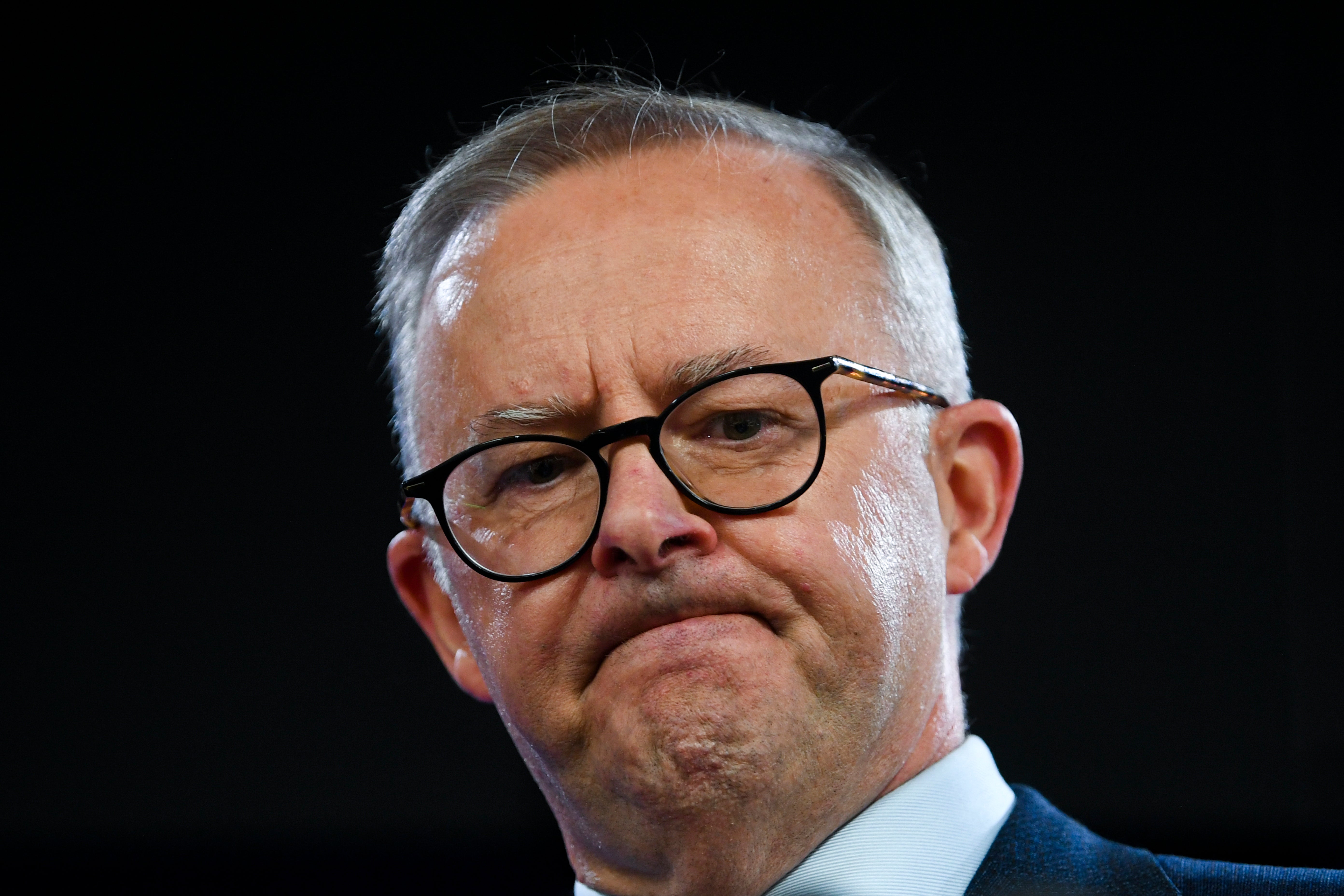Australian opposition leader: China relations won't change
The opposition leader in Australia says its relationship with China will remain difficult even if his center-left Labor Party wins power at elections for the first time in almost a decade

Your support helps us to tell the story
From reproductive rights to climate change to Big Tech, The Independent is on the ground when the story is developing. Whether it's investigating the financials of Elon Musk's pro-Trump PAC or producing our latest documentary, 'The A Word', which shines a light on the American women fighting for reproductive rights, we know how important it is to parse out the facts from the messaging.
At such a critical moment in US history, we need reporters on the ground. Your donation allows us to keep sending journalists to speak to both sides of the story.
The Independent is trusted by Americans across the entire political spectrum. And unlike many other quality news outlets, we choose not to lock Americans out of our reporting and analysis with paywalls. We believe quality journalism should be available to everyone, paid for by those who can afford it.
Your support makes all the difference.The opposition leader in Australia said Tuesday its relationship with China will remain difficult even if his center-left Labor Party wins power at elections for the first time in almost a decade.
Anthony Albanese addressed the National Press Club in what is regarded as an unofficial launch of campaigning ahead of elections due by May.
Prime Minister Scott Morrison will address the club next week.
Albanese suggested Australia’s policy toward a more belligerent China would not divide the parties during the campaign.
“Whoever’s in government, it will be a difficult relationship,” Albanese said. “It will be difficult because the posture of China has changed. It is China that has changed, not Australia that has changed.”
“I don’t ... blame the government and never have for the current circumstances,” Albanese added.
Morrison is the third prime minister of the conservative coalition since 2013 when Albanese was the deputy prime minister of a Labor government that was voted out of office.
The first conservative Prime Minister Tony Abbott hosted Chinese President Xi Jinping during a Canberra visit in 2014 that marked a high point in bilateral relations.
But relations soured when Abbott’s successor Prime Minister Malcolm Turnbull announced in 2017 updated treason and espionage laws that would outlaw covert foreign interference in politics.
Throughout Morrison’s tenure, which began in 2018, Chinese ministers have refused to speak to their Australian counterparts while key Australian exports including coal, wine and barley have been disrupted.
Exporters have generally supported the government’s willingness to risk angering China through policies such as calling for an independent investigation into the origins of the COVID-19 pandemic.
Albanese said a Labor government would deal with China “in a mature way. Not by being provocative for the sake of it to make a domestic political point.”
“I don’t argue that a change of government will simply change the relationship. Because that’s just something that we have to deal with,” Albanese said.
Albanese said the three pillars of a Labor government’s foreign policy would be Australia’s alliance with the United States, engagement with regional partners and engagement in multilateral forums including the United Nations.
Albanese was critical of government cuts to aid spending in the Asia-Pacific region which had helped China increase its influence in the region.
“It was very short sighted for this government to withdraw from aid in the Pacific in the way that they did,” Albanese said.
“If Australia and democratic nations withdraw, guess what? There are others who may want to fill that gap,” he added.